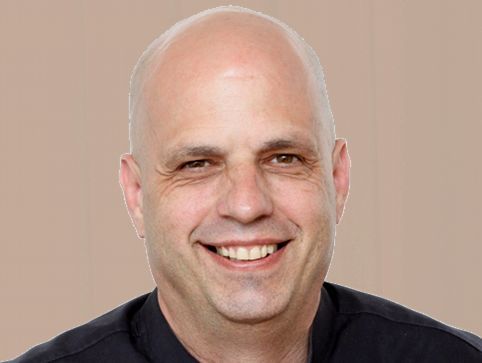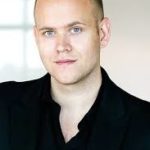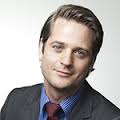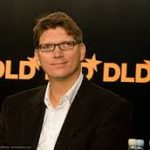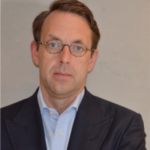A lot changes in a year, especially in consumer-facing digital tech.
Just not enough.
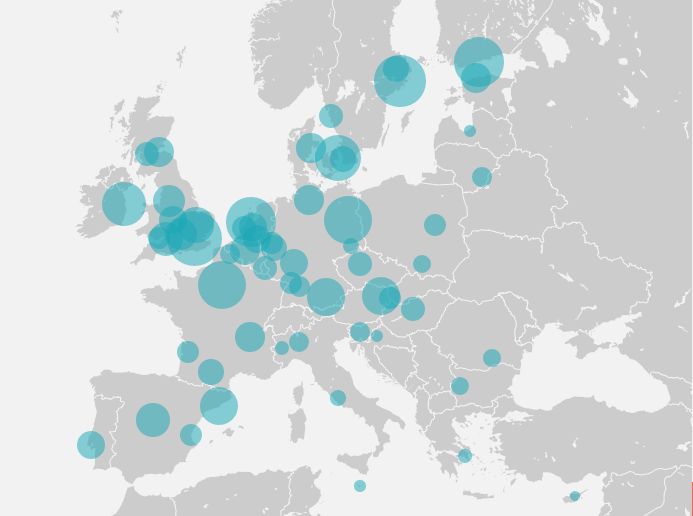 There are still no European Facebooks, Apples or Googles. Those super-high-tech hardware challengers that have emerged, such as chipmaker NXP, have been gobbled up by American tech giants.
There are still no European Facebooks, Apples or Googles. Those super-high-tech hardware challengers that have emerged, such as chipmaker NXP, have been gobbled up by American tech giants.
But, in just the last few years, a number of positive trends have begun to appear. Especially for us, because Dispatches is predicated on the increasing global mobility of talent.
• First, the French have emerged as Europe’s increasingly ambitious and formidable global innovators, on pace to catch or surpass the Brits and Swedes.
• Second, an increasing number of Europe’s prodigal digital entrepreneurs are returning home to Europe from Silicon Valley.
• Third, with the election of Donald J. Trump as U.S. president, Europe suddenly has become a far more attractive place for international talent.
The media are actually starting to notice.
The Financial Times had a post yesterday, “Europe has chance to dominate deep tech,” that looked at the possibility of capturing American talent fleeing Trump Reich. Writer John Thornhill alluded to an earlier Atomico report presenting evidence of a growing European domination of “deep tech”: artificial intelligence, robotics, virtual and augmented reality and the internet of things.
But it also included the sobering fact that the market value of the entire European tech sector amounts to 7 percent of the U.S. tech sector.
The Wall Street Journal has had several in-depth posts documenting the resurgent European tech scene, noting the French in particular are most aggressively battling to create their own talent, and therefore, their own tech.
Clearly, Eastern Europe and the Baltics are on the rise, with Estonia starting to run a talent deficit.
What we wrote last year:
If there is one thing Europeans are going to have to change if they really want to develop their own Silicon Valleys it is the vestiges of stifling class barriers. The Class Ceiling. Unlike Europe, America never suffered the burden of royalty and a hereditary aristocracy. So a guy adopted by a working class couple in California, brought up in tract housing and fiddling around in a garage, created Apple computers after spending exactly one semester at a relatively obscure college in Oregon.
Until the past few years, the conventional wisdom in Europe has been the best and brightest go to a top university, then use old school ties to join a prestigious firm or a powerful government cabinet. If they didn’t make it to the top, there was a lifetime position in middle management.
What’s really changed is that we’re meeting more young innovators in our HQ city of Eindhoven who tell us they never want to work for a big corporation, but see themselves creating company after company during their careers à la Steve Jobs.
To be sure, there are in Europe – just as in the U.S. – echelons of stars and superstars. We wanted to include both established entrepreneurs, as well as a few who might not have the visibility of a Xavier Niel, Daniel Ek and Niklas Zennström.
But if you’re, say, an American expat thinking about Europe, this list gives you an idea of the breadth, depth and direction of digital tech in Europe.
Without further ado, here’s our informal list of people expats – especially new arrivals – need to know in Europe’s tech universe, listed by where they’ve spent the majority of their careers, or by national origin. And yeah, we left a lot of people out. But tell us at [email protected] whom we should include:
Czech Republic
• Joao Duarte: Duarte, who is Portuguese, is co-founder of Techloop in Prague.
Techloop lets IT talent connect directly with potential employers.
Techloop just got an investment from Rockaway Ventures.
• Jakub Havrlant: Havrlant is Rockaway Ventures CEO.
The fund’s strategy is to identify, then build, internet-based tech companies in emerging markets that will become “symbols of success.”
Rockaway has operations in Prague, San Francisco and Sào Paulo.
Rockaway just invested in Techloop, which matches developers to companies that need them.
Estonia
• Taavat Hinrikus: Hinrikus is co-founder CEO of London-based TransferWise, which has revolutionized money transfer across borders.
He’s also one of the rare Europeans with a PayPal Mafia-style history of multiple successful startups á la Reed Hoffman and Peter Thiel.
Before TransferWise, Hinkrikus was Skype’s director of strategy until 2008, starting as its first employee.
Finland
• Ilkka Paananen: Paananen is CEO and co-founder of Helsinki-based Supercell, a 150-employee company that made $1.7 billion – billion with a b – in 2015 with top gaming titles such as Clash of Clans. Founded in 2011, by early 2013 Supercell was earning 2.4 million euros per day having released just two games.
In 2015, Japan’s SoftBank upped its stake in the startup to 73 percent, up from 51 percent, becoming the only outside investor as several VCs exited, according to TechCrunch.
Last year, Supercell went the way of so many European innovators … acquired for billions by a foreign company, in this case China’s Tencent.
Paananen is famous for saying he wants to be the least powerful CEO in the world, worried companies with dominant personalities are vulnerable should that person leave.
France
• Nicolas Brusson and Frédéric Mazzella: Brusson and Mazzella co-founded BlaBlaCar after returning from Silicon Valley in 2006.
BlaBlaCar has 30 million users in 22 countries.
Many, including the Wall Street Journal, see Brusson’s and Mazzella’s success as a turning point, prompting more talent to return to Europe than leave for The Valley.
• Julien Codorniou. Codorniou runs the Facebook Platform in Europe.
When people think of the Facebook platform, they think of web gaming platforms such as Farmville or Candy Crush, Codorniou told the Telegraph in 2015.
Through APIs, Facebook Platform provides app developers the creative tools and analytics to monetize their companies.
• Sébastien Fabre: Fabre is CEO of fashion re-sale site Vestiaire Collective, sort of an eBay for people with money and a sense of style.
This is a “why didn’t we think of this” concept.
Vestiaire launched in 2009 as a platform on which members buy and sell top-of-the-range and pre-owned luxury clothes and accessories.
More that 20,000 new items selected by a team of stylists are on Vestiaire, part of a permanent catalogue of 400,000 products.
Cool!
• Ludovic Le Moan: Le Moan is CEO of Sigfox, which is working to create a low-cost communications network for the Internet of Things.
The company provides narrow-band transmission capabilities over a large geographical area for objects such as home appliances via thousands of antennae.
The guy has had an extensive career in both startups (Scoop.it) and more conventional wireless communications businesses.
• Bernard Liautaud: Liautaud is managing partner at Balderton Capital.
Europe doesn’t have a Sandhill Road or an a16z pumping capital into startups.
It does have Balderton Capital, founded by Liautaud, who sold his SaaS firm Business Objects to SAP in 2007 for $6.8 billion.
How influential is this guy? He’s on the board of trustees at Stanford!
Balderton Capital began life in 2000 as the European ops of U.S. tech fund Benchmark before going independent in 2007. Based in London, its portfolio includes Citymapper.
• Xavier Niel. This billionaire French entrepreneur is a bit of a rogue. Niel has been a media and cable mogul since he was 19.
He created France’s first Internet service provider, WorldNet, when he was 25. In 2012, he created discount mobile provider Free Mobile, which has totally disrupted France’s cellular industry.
In the 2000s, he was convicted of “misusing” some of the money from a chain of peep shows (we’re not making this up) he owned, but was given a suspended sentence. At this stage of his life, Niel has become France’s economic savior, dragging the conservative French business culture kicking and screaming into the startup age.
From a 2013 New York Times story:
“He represents the Internet world and the Internet economy, something that is not really appreciated in France,” said Cedric Manara, a law professor at Edhec, a business school in Paris. “He is not one of them. He represents what scares them — the big battlefield between the old and new economy.”
Mr. Niel says his goal is no less than to instill a Web-based entrepreneurial culture in France.
“If people like us don’t start to change things in France, nothing is ever going to change,” Mr. Niel said. “Today France is the fifth-largest economy in the world. But if we don’t change things, we will be the 25th biggest in just 10 years.”
Niel is the person behind La Halle Freyssinet – now Station F – which will be the largest startup campus in the world when it opens 1 April.
The complex in the center of Paris has 400,000 square feet and will have 1,000 participants.
• Roxanne Varza. Yet another American in Paris, Varza is a Silicon Valley native who was an associate and program manager at Microsoft Ventures in Paris.
Was until last year when she left to be director of Niel’s Station F, which bills itself as the world’s largest digital business startup incubator.
Before Microsoft, she was editor of TechCrunch France.
You can see Varza’s TechBaguette blog here.
She speaks English, Farsi and French.
• Corinne Vigreux: Though Vigreux is French, she was instrumental in founding digital mapper TomTom in Amsterdam.
Now she’s working on mapping systems in applications for self-driving vehicles.
Virgreux speaks four languages fluently: French, English, German and Dutch.
Germany/Austria
• Ole Harms: Harms is head of MOIA, Volkswagen’s new ride-hailing startup.
First of all, he represents the intrapreneurial trend of big companies creating and funding small internal teams to innovate, which has been so important to countries such as the Netherlands and Germany.
Second, Harms is at the cutting edge of Europe’s auto industry and its efforts to cope with trends such as ride sharing and self-driving cars coming out of Silicon Valley.
In a post today, the New York Times reports MOIA, unlike Uber, plans not to disrupt the transportation industry but to cooperate with government officials and extend existing transportation networks.
• Rubin Ritter. CEO of Zalando, one of Europe’s rare Unicorns.
(Zalando started as part of Rocket Internet.) In 2008, Robert Gentz and David Schneider founded Zalando in Berlin, an online shoe retailer modeled after Zappos. Seven years later, Zalando is the largest online fashion retailer in Europe, with 2.5 billion euros in sales, and Rubin Ritter is CEO.
Since Ritter joined the company in 2009, revenue and staff have grown rapidly. Zalando was projected to have 10,000 employees by the end of this year.
“We believe Zalando is still quite small compared with what it can be,” he told Financial Times in 2015. “Currently, we have a market share of 1 per cent in Europe [of the total fashion market]. We think this share can be 5 to 10 per cent.”
• Oliver Samwer. CEO of Rocket Internet. Nine-year-old Rocket Internet has somewhere around 36,000 employees and 30 companies in 110 countries. You have to look at its website to even begin to understand the scope of this Berlin-based company, which includes Foodpanda, Jumia and Easy Taxi.
The overall philosophy is to replicate proven consumer Internet business models and transfer them to under-served or untapped markets where they can be rapidly scaled. In other words, their food delivery and digital ride-hailing startups are essentially copies of existing business, transferred to emerging markets such as Indonesia.
Samwer and his brothers – Marc and Alexander – started out in San Francisco, where they were impressed by a startup called eBay.
In 1999, they took the concept back to Germany and founded their own auction site, Alando. In 100 days, they sold Alando to eBay for $43 million! And that’s pretty much set the tone for Rocket Internet ever since.
This year, they just closed a $1 billion fund.
• Valentin Stalf and Maxmillian Tayenthal: Stalf and Tayenthal are co-founders of Berlin-based N26, the first completely digital bank.
N26 is live in Germany, Austria, France, Italy and Spain.
(A note – Tayenthal and Stalf are both Austrian by birth. And as an Austrian friend said, “Are we the same as Germans? Sure … just like Americans and Mexicans.”)
Ireland
• Paddy Cosgrave: Cosgrave founded The Web Summit in Dublin back in 2010, and by 2015, it was Europe’s largest tech summit.
In 2015, he became a villain in Ireland and a hero in Portugal when he announced he was moving the hugely influential summit to Lisbon for 2016.
Again, it just got bigger, rising to 53,000 attendees from 42,000 in 2015.
Though a dissident narrative is forming around Web Summit and tech summits in general. Or as one snarky Atlantic writer wrote, “…. where humanity rushes towards its extinction.”
Netherlands
• Dave Dirks. Dirks is an attorney in Amsterdam who works with a number of startups and has done deals for European media companies such as Helsinki-based Sanoma.
He also is managing partner of EVO Venture Partners, which invests in early-stage IT infrastructure startups.
• Guus Frericks: Frericks is the founder of HighTechXL high-tech hardware accelerator and behind several efforts to make Eindhoven the high-tech center of Europe.
You scoff, but Eindhoven already has the crème de la crème of ultra high-tech companies including ASML, which makes the tech that makes digital technology possible.
Now, Frericks is leading an effort to inject Silicon Valley-style innovation mentality into the conservative Dutch culture, and to attract the most promising high-tech hardware companies from all over the world.
Frericks’s goal is the same as Xavier Niel’s … nurture the startups today that will become the Netherlands’ foundational companies tomorrow.
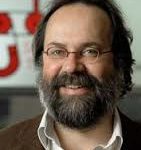 • Maarten Steinbuch: Steinbuch is one of the most versatile and connected people in the emerging Eindhoven scene.
• Maarten Steinbuch: Steinbuch is one of the most versatile and connected people in the emerging Eindhoven scene.
Formally, Maarten is distinguished professor in Systems- and Control at TU/e. But there’s so much more to his story.
He’s also CEO of Medical Robotic Technologies which includes Preceyes, the medical robotics company.
His son Yuri developed the STORM Wave electric motorcycle project, riding the machine around the world last summer to prove its practicality.
• Vincent Steckler: Could this become a trend? One of Europe’s top tech execs is an American expat. From California, no less.
Steckler left Symantech in Mountain View, Calif. to become CEO of Avast, a software security firm founded in Prague, but now is headquartered out of Amsterdam.
Avast acquired the Czech Republic’s other software security firm, AVG, last year for $1.3 billion.
• Pieter van der Does: van der Does is CEO of Adyen, based in Amsterdam.
Processing payments for social media hubs such as Facebook, Netflix and Airbnb, 10-year-old Adyen is the Netherlands’ only “Unicorn.”
Okay, maybe Adyen and Booking.com.
Tech.eu has the best interview with van der Does, in which he explains all the Adyen elements that have global tech titan such as Mark Zuckerberg throwing money at the transaction/tech company.
• Xandra van Wijk: van Wijk is a lead game designer at King, specializing in mobile and social games development.
Currently working on Farm Heroes Saga, Xandra started her career in games at Spil Games after earning degrees at Delft University of Technology in the Netherlands.
In 2016 she was part of the BAFTA games awards jury and has spoken at a number of industry events.
Portugal/UK
• Lars Fjeldsoe-Nielsen: Fjeldsoe-Nielsen is half-Portuguese, half-Danish and is known as “the Godfather of mobile business development.”
He’s another returnee from The Valley having worked at Uber Technologies and at Dropbox, and was an advisor at WhatsApp into 2014.
Now, Fjeldsoe-Nielsen is in London, working as a VC at Balderton Capital.
Spain/Ireland
• Liz Fleming. Irish expat and Spanish startup veteran Fleming is the force behind Spain StartUp.
A Kauffman Fellows alum, she heads up the South Summit, the largest startup conference in Southern Europe.
From Fleming’s LinkedIn bio:
We bring together the best talent from across Southern Europe, the Mediterranean, and Latin American for 3 days in Madrid to meet with customers and investors from the region. We believe this region is overlooked and undervalued and are working as a catalyst to make the ecosystem more globally competitive.
Fleming speaks English, Spanish, Irish and French.
Sweden
• Daniel Ek. The founder of Spotify founded his first startup in 1997 when he was 14, according to his Wikipedia bio.
Now, Spotify is the top streaming-music app ranked by revenue, with 20 million paying customers. But success hasn’t come without a significant amount of drama, with recording artists such as Taylor Swift accusing Spotify and other streaming music services of not paying sufficient royalties.
Artists earn on average less than one cent per play – between $0.006 and $0.0084 – on Spotify, according to Spotify Artists.
Oddly, Ek claimed Swift’s departure from Spotify in November 2014 was a victory.
He told the IAB Mixx interactive advertising conference that when the superstar removed all her music, the publicity attracted a whole new group of listeners.
“The middle of America found out what Spotify was, so we had a big success,” Ek said. “I wish we could have gotten that attention in a better way than pissing off Taylor Swift.”
• Sebastian Siemiatkowski, Niklas Adalberth and Victor Jacobsson: The trio founded Klarna in 2005 even after their idea for an online shopping payment service got last in a startup competition.
By 2015, Klarna had more than 45 million users, collecting fees from 65,000 online merchants.
As they say in The Valley, “Don’t stop buh-leev-aaan.”
• Jane Walerud. Walerud is a partner at Walerud Ventures and social investor who helped Klarna get started.
From her LinkedIn profile:
Of the fourteen ventures I’ve been (or currently am) heavily involved with during the last seventeen years, four have done extraordinarily well: Bluetail, Lensway, Klarna and Tobii. Three have not done well, and the others are either successful exits or are growing nicely. From 2002 to 2016, we have had an annual return on investment on invested capital a bit north of 60%.
Alright, then.
• Niklas Zennström: Zennström is one of Europe’s best known digital pioneers, founding Kazaa, the music sharing website, in 2000 with Janus Friis.
But of course, he’s most famous as the creator of Skype, the name of which is now synonymous with real-time digital communication.
Ebay first acquired Skype in 2005 for $2.6 billion. Then Zennstrom and a consortium bought it back, selling it in 2011 to Microsoft for $8.5 billion.
Zennstrom now runs tech investment firm Atomico and is an advocate of Europe becoming dominant in what he calls “deep tech.”
Switzerland
• Klaus Hommels. Zurich-based VC Klaus Hommels likes to get in on the action early in the game. (Don’t we all?)
Hommels was an early investor in Skype, Spotify, Facebook, and other tech successes. Lakestar, his VC fund, specializes in seed and early-stage investments. Last year, Lakestar raised a 350 million euro fund to invest in digital start-ups in Europe and in the U.S.
This effort could mean the startup scene in Europe goes to a different level. Hommels told Financial Times the size of Lakestar’s newest fund reflects the growth of the European tech scene in recent years.
“There is a chance to now give [start-ups] a $20m-$30m cheque to quickly accelerate and become the market leader in Europe,” he said. “This opportunity wasn’t there five years ago, because you didn’t have companies that were suitable for the cash injection.”


